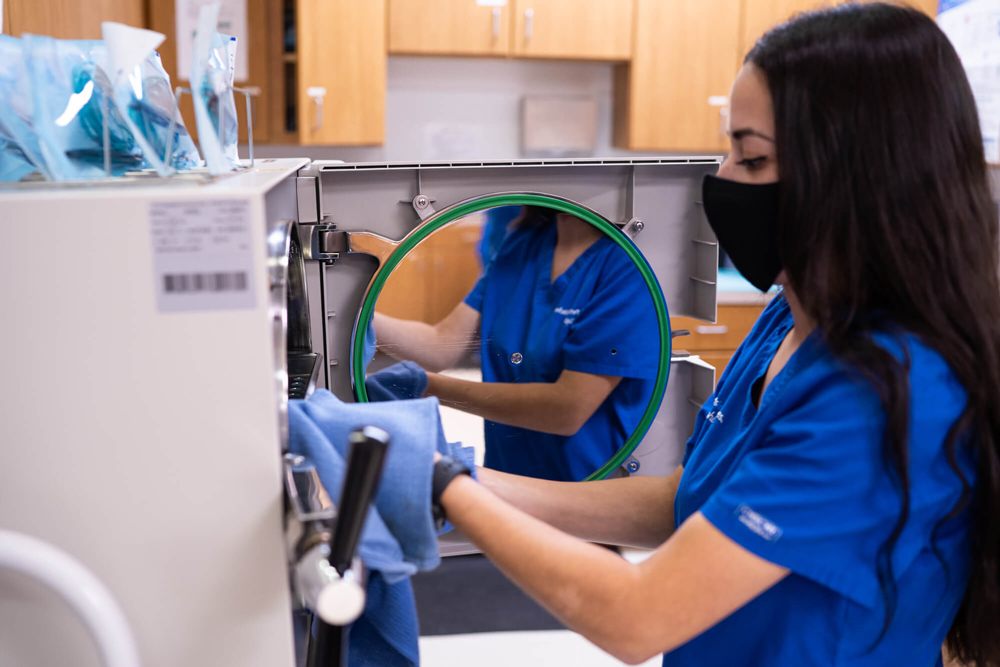

Better From the Start
An ounce of prevention is worth a pound of cure. We follow these words through and through. Whether it’s in regard to testing cysts, maintaining dental care, or sterilizing our surgical area—Pets in Stitches is all about putting the time in upfront to avoid problems later.
Specific Protocols for Safety
In this article, we talk about our strict sanitation protocols as preventative care. It’s important to have consistent disinfecting steps to reduce the risk of disease during your pet’s time with us and after. We pay extra attention to ensure the health of the pets in our care.
Making the Judgement Call
In addition to cleanliness, other factors contribute to a successful surgery outcome. A key contributor is determining if the pet is well enough to undergo surgery. We have the expertise to evaluate if a pet is in the right condition and whether it would be better to postpone surgery.
For a quick lesson, these are some of the ways disease can be spread:
- Bodily fluids (urine, feces, blood, discharge)
- Aerosolized (through the air)
- Direct contact (pet to pet)
- Vectors (for example: fleas, mosquitoes)
- Fomites: an inanimate object or substance that is capable of transmitting infectious organisms from one individual to another. Basically, a fomite is anything that can carry disease (such as hands, shoes, clothing, cleaning or medical equipment, pens, pencils, papers, computers, counters, exam or surgical tables, leashes, carriers, insects)
Yes, this is a long list of possibilities that influence disease transmission.
Beyond the conditions that can spread disease, other factors can impact the success of a surgery:
- Stress, anxiety, inappetence (learn how PNS mitigates these issues)
- Age (this is why we like to avoid pediatric surgery if possible and why we take so many extra steps with the older patients)
- Low immunity (why we recommend all pets complete their vaccines prior to surgery)
- Recent surgery (pet uses energy for healing)
- Pre-existing conditions (intestinal parasites, poor nutrition, other disease—which is why we will decline a non-healthy pet for an elective surgery until the pet feels better)
- Infectious organism itself (virulence = how easily it makes an animal sick)
- Infectious organism load (this is where our disinfection protocols make a difference!)
Disease Control Aid
To ensure consistently clean environments, we employ a Disease Control Aid (DCA) on our team. The DCA disinfects and also helps monitor patients to report any abnormalities to medical staff—both before and after surgery. Our DCA, Kaye, knows that she must clean every nook and cranny of the runs and cages to minimize disease transmission. Our medical staff does the same in the surgery suite and surgery preparation area. All our staff have both formal training via classes as well as on the job training.
Rescue
The disinfectant and deodorizer we use is Rescue and it’s specialized for animal care settings. From bacteria to viruses, fungus to mold—the potent formula cleans surfaces for immaculate conditions.
For Successful Surgeries
As a veterinary surgery center, we understand it’s imperative that cleanliness comes first. It all adds up to safer pet surgeries—for less complications and quicker recoveries.